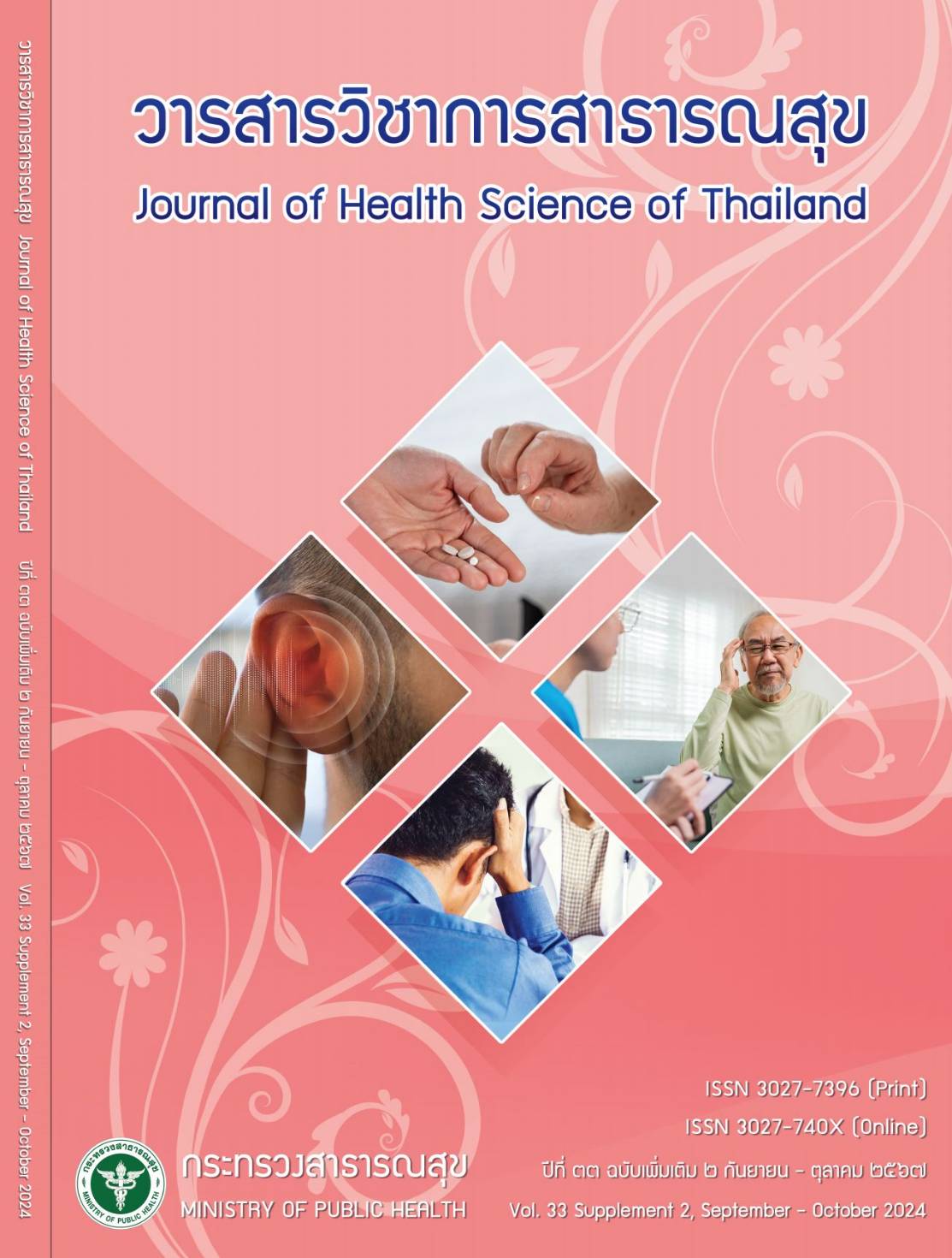Effect of Treatment for Dementia Patients Using Telemedicine in Elderly Clinic at Wichianburi Hospital
Keywords:
telemedicine; dementia; elderlyAbstract
This study aimed to report the result of treatment for dementia patients with telemedicine in
Elderly Clinic at Wichianburi Hospital. Samples were 20 patients with dementia who received treatment
in the Elderly Clinic. Data were collected between August 2022 and December 2023. The research
instruments included (1) Informant Questionnaire on Cognitive Decline (IQCODE), (2) 14 questions items,
(3) WHOQOL-BREF-Thai questionnaire, and (4) Thai Mental State Examination (TMSE). Satisfaction
assessment was performed through telemedicine treatment. Data were analyzed descriptively using frequency
distribution, percentage, mean, standard deviation; and analyzing differences in symptoms after treatment
by paired t-test statistics at 0 and 6 months. The research results revealed that most patients were male,
65.0%, with the mean age of 74.05 years (SD=7.91). The mean IQCODE before treatment was 4.52
(SD=0.54) and after treatment 4.06 (SD=0.68). The mean for 14 questions-item results before treatment
was 49.50 (SD=7.77) and after treatment 43.95 (SD=8.29). The WHOQOL-BREF-Thai before
treatment mean average was 68.8 (SD=9.18) and after mean average was 79.4 (SD=7.28), TMSE
before treatment mean averaged 13.85 (SD=4.64) and after mean averaged 16.7 (SD=4.15). The study
results revealed that the elderly patients had some degree of dementia at first admission. This could be
observed from the assessment of brain status in all 4 areas. After using the telemedicine system to treat
the patients for 6 months, there was a tendency of improvement among them. In addition, the patients were satisfied
with the services provided through the telemedicine system
Downloads
Downloads
Published
How to Cite
Issue
Section
License

This work is licensed under a Creative Commons Attribution-NonCommercial-NoDerivatives 4.0 International License.







